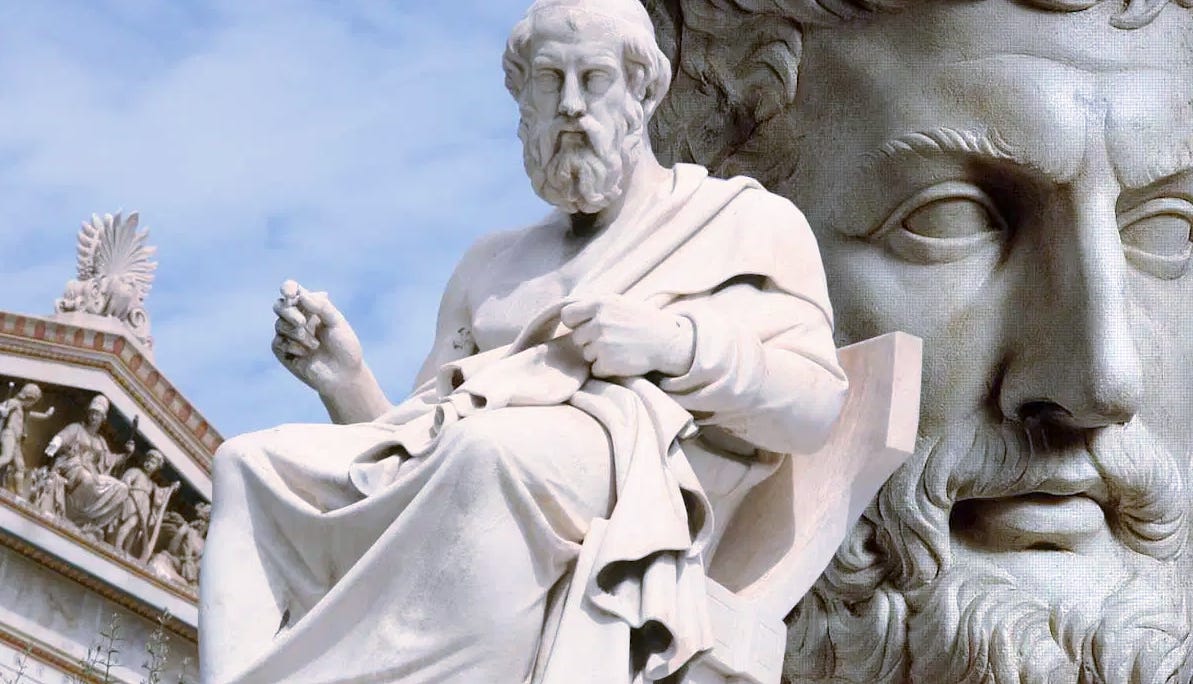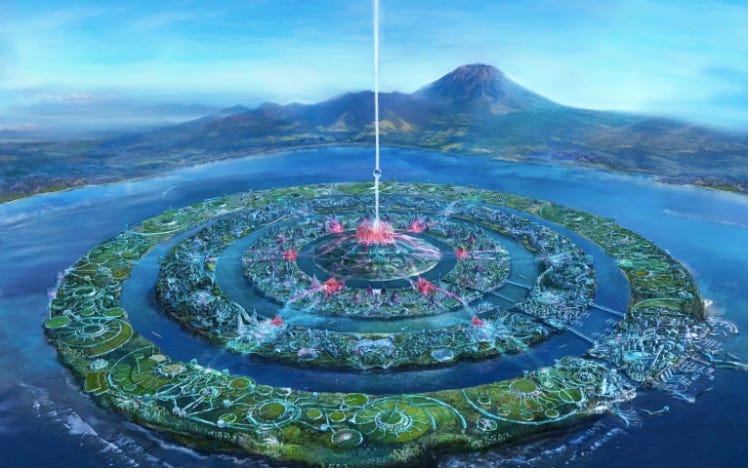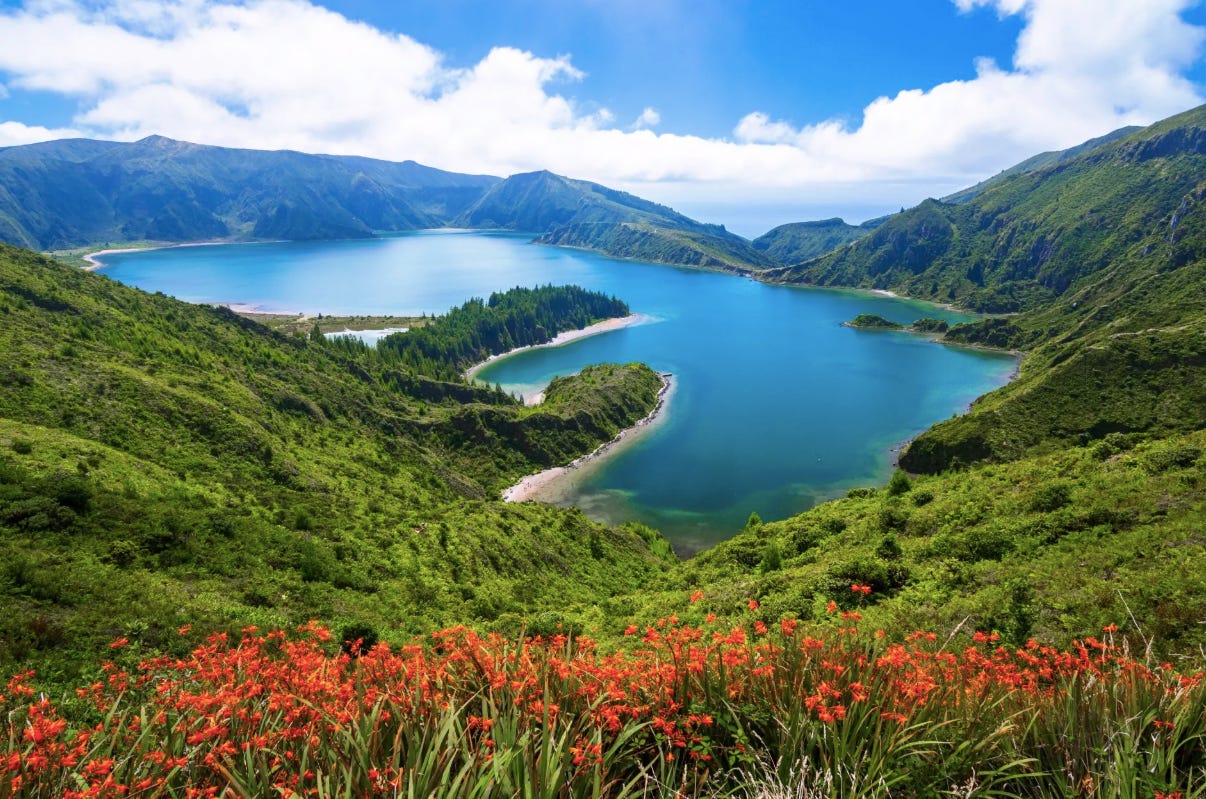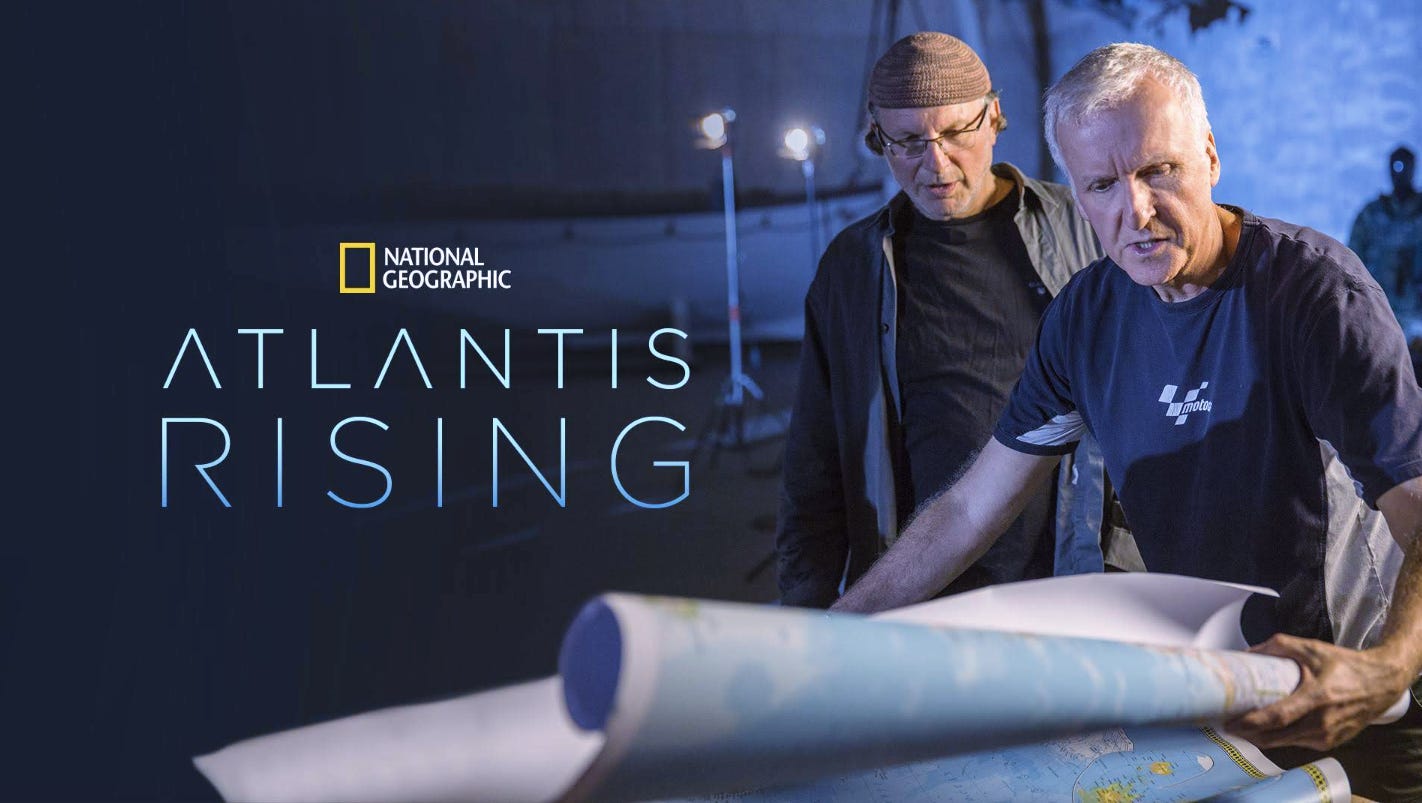“Are we looking at the traces of a forgotten episode in human history? I think so. And because we’ve forgotten it and we are a species with amnesia, because we are so much a mystery to ourselves, perhaps it’s because of that we are so lost and so troubled today, so haunted by a sense of something missing – that we need to know about ourselves…”
Graham Hancock, ‘America Before’ Lecture Tour, 2019.
Six years ago I had the pleasure of listening to Graham Hancock deliver a lecture based on his book ‘America Before’ at King’s College, London. It was a hot summer’s night, and my friend Michelle and I were sweating along with 2000 other nerds, crammed into the venue hanging on every word of this luminary of the ‘Alternative History’ world. Apart from the twenty minutes I missed queueing for the loo, the presentation and the atmosphere was electrifying. Little did we know that just a few months later, the world was to change irreversibly, and these ‘fringe’ themes were on a fast track to becoming mainstream.
I have for some time wanted to write a ‘Beginners Guide to Atlantis’ but because it’s become a hot topic this past week due to the seismic activity on the Greek Island of Santorini, (one of the suggested locations), I thought I would dive right in.
NB - This is not in any way meant to trivialise what is happening in Santorini right now, whose inhabitants are still not completely out of danger. I sincerely hope that the communities and structures on this beautiful island remain safe and intact.
Over the past few years, the amount of content about Atlantis has gathered pace, providing a rich seam of material for YouTubers and podcasters. My first exposure to it was listening to Graham Hancock and Randall Carlson on Joe Rogan back in 2016-7, and I have been hot on the trail since then.
Hancock’s work centres around the theory that there was an antediluvian civilisation whose influence was felt on several continents, evidence of which can be found in ancient sites worldwide. This civilisation was destroyed in a flood which has been mythologised in every culture from the Epic of Gilgamesh, to the biblical Noah’s Ark to the Mayan’s Huracan.
Hancock asserts that the story survived in oral tradition only, until Plato who learned it from a succession of grandfathers, wrote about it in his 360 BC dialogue ‘Timaeus and Critias’.
But was it a true story? Plato loved the medium of allegory, after all.
“Then listen Socrates, to a strange tale which is however certainly true, as Solon who was the wisest of seven sages, declared”
So there you go. He actually said it was true. So that’s settled!
The main protagonist is Plato’s antecedent Solon, who visited Egypt and learned from a priest, Sonchis of Sais, that the Greeks were basically total noobs on the scene, had no idea about history, and could only recall one natural disaster! Pffftt! This was the Minoan tsumani which affected what is now Santorini over a thousand years earlier (more on that later).
The priest told Solon, that thousands of years even earlier than that, there was an advanced civilisation with a large military, mariners, advanced mathematics, astronomy, architecture, and infrastructure. But they were such decadent smarty pants they angered the Gods who decided in the usual disgruntled Gods-like fashion to take ‘em out.
“There occurred violent earthquakes and floods; and in a single day and night … the island of Atlantis … disappeared into the depths of the sea.”
But there were some survivors, possibly the characters featured in many myths as benevolent God-like beings, who helped bring knowledge to the communities who remained après le deluge.
Survivors of a lost civilization, thought of as 'gods' but manifestly human, set about 'wandering' the world in the aftermath of an extinction-level global cataclysm. By happenstance it was primarily hunter-gatherer populations, the peoples of the mountains, jungles, and deserts --'the unlettered and the uncultured,' as Plato so eloquently put it in his account of the end of Atlantis--who had been 'spared the scourge of the deluge.' Settling among them, the wanderers entertained the desperate hope that their high civilization could be restarted, or that at least something of its knowledge, wisdom, and spiritual ideas could be passed on so that mankind in the post-cataclysmic world would not be compelled to 'begin again like children, in complete ignorance of what happened in early times.
Graham Hancock, America Before: The Key to Earth’s Lost Civilisation
Those survivors, including those who came to be known as Osiris and Thoth in Egypt, and Una Pachakuti (aka the Kontiki Man from the Inca mythology), passed on their advanced knowledge of engineering and astronomy. This is how the Ancient Egyptians built all those insane mathematically perfect structures that still we cannot replicate to this day.
So, Atlantis sounds feasible in theory, right?
But I suppose we need some tangible proof it existed. So where to look ?
Initial translations of the text – the most famous being that of 19th Century classical scholar Benjamin Jowett, described it as an island, ‘west of the Pillars of Hercules’, which people believed was in the Strait of Gibraltar connecting the Mediterranean Sea with the Atlantic Ocean.
So, we might expect that it was somewhere in the region of the Atlantic Ocean. Bit vague – but hey, the name’s a giveaway, right?
What did it look like?
Plato explains that Atlantis was a densely populated, wealthy place, dripping in gold and silver, with fertile land and exotic animals like elephants. (Fun!) It was on a hill surrounded by two rings of land and three of water, with channels and bridges connecting them.
Strangely enough, despite the fact that Plato’s alleged allegory contained way too many facts and stats for a work of fiction imo, the key mic drop moment comes with the date.
He states (writing in 360 BC) that it was destroyed roughly 12 and a half thousand years previously. We know that around 9600 BC, large areas of the planet were impacted by a massive and sudden increase in the volume of water which changed the map of the globe forever - perhaps this was ‘Great Flood’ from the myths of yore?
But, if it existed why haven’t we found a location yet?
Was everything destroyed and no trace left?
At the time of writing, we haven’t found a single location for Atlantis.
Psych! We’ve found at least 20!
After its barnstorming debut in the Classical World, the story of Atlantis was kept alive by the European secret societies like the Freemasons who studied the Hermetic Texts (which originated from Hermes Trismegistus aka Thoth – an Atlantean survivor). But it crossed over to the mainstream in 1882, when Ignatius Donnelly rebooted the franchise with his blockbuster –‘The Antediluvian Myth’.
This fuelled further fascination over the next few decades. It was a rich time of scholarship and interest in the esoteric and hermetic, with the Theosophists and Golden Dawn leading the charge.
This was the era the Rider Waite tarot was published after all, a deck of cards is laden with ancient Egyptian, Astrological, Kabbalistic symbolism.
Fast forward to the 1930’s; an era of great mystics, Rudolf Steiner, Carl Jung, and psychic Edgar Cayce had a whole series of prophecies concerning Atlantis.
More people now had the means, inclination, and oceanographic technology to launch exploratory expeditions. Several of which found interesting remnants on the floor of the Atlantic upon the ‘Atlantic Ocean Ridge’. This area is a confluence for no less than three tectonic plates (yikes), and there is evidence that the top of this underwater mountain range not only used to be above sea-level, but has popped up and down (technical term) within that specific time frame.
For the geology buffs this paper, Mesozoic Limestone from the Vema Offset Zone, Honorez, J., et al is a rip-roaring read.
Likewise, this gripping page-turner, ‘The Ocean Floor’ by Hans Peterson, (Yale University Press), reveals that there is evidence of a beach or coastline along the mid-Atlantic Ridge.
So naysayers be gone! It is entirely scientifically possible that there was a land mass in the Mid-Atlantic, submerged ten thousand years ago.
The Mid-Twentieth Century enjoyed a bit of an Atlantis boom, with people finding possible locations all over the place from the Caribbean to Antarctica.
As the brilliant content maker and ancient history geek Jahannah James points out in this video (to which I owe many of the details of the academic papers) Plato’s Atlantis was described as a ‘capital’ of an empire. It’s entirely possible that the empire spanned the habitable globe.
Graham Hancock’s hypothesis that an antediluvian civilisation held common beliefs and habits; building pyramids and structures that lined up with astronomical phenomena and important calendrical moments, lends further weight to this idea.
Sites as diverse as the Pyramids of Giza, Egypt, Gobekli Tepe, Turkey, Gunung Padang, Indonesia, Serpent Mound, Ohio, and Cholula, Mexico and Stonehenge, UK make the case that the influence of heck, let’s just call them The Atlanteans, spanned every continent.
But largely, when we talk about the ‘Lost’ Atlantis – we’re talking about this capital city, the one ringed by concentric circles of water and land and brimming with elephants.
Here, just for you, is my list of top contenders, with an analysis of how likely each might be. (NB I’ve omitted places like Bimini Road or The Americas, in favour of places more closely resembling the city as described by Plato).
Santorini, Greece, (formerly known as Thera)
Modern-day idyll Santorini was once home to the Minoan Civilisation - wiped out by a terrible earthquake and tsunami in 1600 BC. Many people believed that the Minoan Civilisation was the ‘Atlantis’ that Plato was on about.
This appears to be because a) it happened in Greece and well, you write what you know, innit? And b) there is concrete evidence that it happened – and also a major underwater faultline which is quivering as we speak.
However, what proponents of this argument seem to ignore, is that the Atlantis that the Egyptian priest describes to Solon is much, much older and he even starts the whole yarn by referencing the Minoan disaster and admonishing Solon by telling him this is as far back as those wet-behind-the-ears Greeks went.
Then there’s the location. If we accept that Atlantis lies “beyond the Pillars of Hercules and that this meant the Straits of Gibraltar, then Santorini is decidedly off the mark. Some theorise that Plato may have had an agenda and wanted to place Atlantis as far away from Greece as possible but that’s pure conjecture and we can’t know for certain.
Another discrepancy is the fact that Thera, or Santorini is still with us, and not submerged. It’s also too small, the Plato depicts it as being the size of Libya and Asia combined! I think this discounts the Aegean as an option and directs us West, down the Straits of Gibraltar, depositing us on the Atlantic coast of either Europe, Africa, or into the ocean itself.
The Azores
The Azores are a collection of volcanic islands in the mid-Atlantic so they fit the bill geographically. They are what’s left of this proposed land mass that kept ‘popping up and down’ (read the paper!) in the mid-Atlantic Ridge Area.
One of the main proponents of The Azores case is Randall Carlson. An architect, geologist and astronomer, regular guest on the Joe Rogan show, Graham Hancock collaborator, and, apparently a 33rd degree Mason (and as we know they’ve been studying Atlantis for centuries!)
You can watch hours and hours of Randall setting out the argument for the Azores here on his excellent channel. Take your pick of the lengthy and scholarly videos. If Jupiterian Santa Claus lookalikes discussing rock formations and sacred geometry is your jam – you’re gonna love it!
Also in the Azores corner is the strange story of the scuba diver who discovered a 60-metre underwater pyramid while diving off the coast. It’s very hard to find material on this since I last looked, and researching this article it struck me as to how much stuff is regularly wiped from the internet. Hmm. I remember watching a Portuguese news report featuring the man himself who declared it ‘as big as a football pitch’ and the reporter saying that the area had been sealed off by the Portugese Navy, but I can’t find it, so you’re just going to have to take my word for it!
Here's a piece from a surfing website where you can find more details. However if YOU have any further information or recollection on this topic, please dial 0800…just kidding: let me know in the comments. (*Cues ‘Crimewatch theme tune*)
Doñana National Parc, Spain
Now, in the original text, Plato also describes Atlantis as having been covered in a mud shoal, rendering the sea beyond the Pillars of Hercules impassable.
So it’s also possible that the kingdom formerly known as Atlantis, is not beneath the waves, but living under a new identity as unassuming marshland or mud-flats.
Fifteen years ago, a team from Hartford University used satellite imagery to identify artificial islands built in the form of concentric rings. The team used deep-ground radar, digital mapping, and underwater equipment to survey the site, which resembled other ruins found in central Spain. The team believed these could have been replications of an original site, possibly by survivors from the original tsunami.
This area was featured by director James Cameron in his 2017 movie, Atlantis Rising, and has the right location and potentially the structure for the lost city. But was it the original, or was it a replica? And what was it with these flipping concentric circles?!
An interesting aside on this Iberian Peninsula area of Spain: it was also home to the Tartessos Civilisation who met their end in a massive mudslide in 500 BC, about 140 years before Plato wrote about Atlantis. So, y’know - there’s form. And mud. Lots of it.
The Richat Structure, Mauritania, West Africa
This, I believe is my current favourite.
Jimmy Corsetti from Bright Insight has done a brilliant job of amplifying this idea, bringing it to a wider audience on his excellent YouTube channel and podcasts like yep, you guessed it…The Joe Rogan Experience!
The Richat Structure, also known as the ‘Eye of the Sahara’ is an amazing 40 km circular structure, thought to be natural, situated in such an isolated area it was first ‘discovered’ (or re-discovered) from Satellite photography.
It has been shrouded in secrecy, and the subject of a CIA research project conducted in geomagnetic anomalies which you can read about on their website. (NB At least I think you can read it, I actually can’t deal with the ridiculous font they use for public-facing documents. When they’re not redacting the juicy bits, they use the most illegible typeface known to man. It’s like they don’t want us to know stuff. We’re on to you, CIA!)
Corsetti gives credit to the original author of this thesis, George Sarantitis, a Greek scholar, philologist, and engineer who re-translated Timaeus and Critias, realised several important mistranslations, and even went to the Richat Structure to investigate, in 2008.
George’s amazing story is captured in this fascinating, new documentary by classicist and film-maker, Mike Kelley, ‘The Atlantis Puzzle’. (available on YouTube and Prime).
The physical resemblance of the Richat Structure, the rings, size, location, and geological evidence that it was impacted by a massive deluge at the start of the Holocene Period (9600 years ago) all makes for a very compelling case.
Mauritania is also incredibly resource-rich. The richest man in the history of the world – (no, no that one!) Mansa Musa came from just nextdoor in Mali, and gold, plus elephants are plentiful. It’s also the right size, especially if you combine it with Mali, and maybe Libya. It is now dessert but we know how that back then it was a lush green area, full of life, massive lakes – everything it takes to build an empire.
Mali is also home to the Dogon religious sect who are very interesting indeed. Wisdom keepers to the secrets of Khemet, they hold an advanced knowledge of astrophysics and even quantum physics that way pre-dates the discoveries of Newton and Einstein. It is said they were refugees from Ancient Egypt, forced out by the Dynastic Egyptians due to their adherence to the ‘The Old Ways’.
But perhaps their ancestors were refugees from somewhere else… somewhere that begins with an ‘A’. (*taps nose*)
The problem with the Richat angle is that not many people other than George Sarantitis have been there. It’s hard to access, dangerous, and logistically tricky. Hopefully renewed interest in this area will attract investment for larger-scale expeditions, academic research, and expensive new-fangled tech scanning missions.
Western Africa, for me, is the place.
We’ve got concentric circles, gold, elephants, and don’t forget mud! Another tick in the box of the Richat Structure is that there is a mudflat area just off the Western Mauritanian coast called Banc d’Arguin, now a UNESCO World Heritage Site. It was formed roughly 11,000 years ago so it works dates-wise and its presence, for me, adds further credibility to the case for the Western Sahara area.
So which location resonates with you?
Or was the whole thing simply an allegory?
For me, it works as both.
There is a huge amount of scientific evidence which shows that it is entirely plausible Atlantis existed and was destroyed. And plenty of evidence that there was a culture with remnants spanning the globe.
But it also represents a profound truth.
In our dualistic tradition, we are directed into a state of separation and forgetting where we came from. Small children can often ‘remember’ our origins in ‘heaven’, memories from their time in utero, or give chillingly accurate tales of past lives. By the time they leave kindergarten, they forget it all.
It makes total sense that just as we are not the only intelligent life in the universe, we are not the first attempt at human civilisation. In fact, many indigenous cultures describe us as being the latest in several iterations.
I feel that we’re moving increasingly closer to tangible proof that there was a prior advanced civilisation washed out of the history books by a cataclysm, and as Hancock says we are ‘a species with amnesia’.
We are disconnected from our roots, from spirit, and from our connection with this planet, whose rhythms flow within a larger universal beat.
Some 12,800 years ago this balance between earth and stars was lost, and a key chapter of the human story was lost with it. If it happens again, if this brief chapter, too, is lost, will all that remains of us … be an unhappy myth that tells of how through our own greed and conceit, through our own recklessness and disregard for the planet in our care, and through our own excess of hate and dearth of love, conspired in our own downfall?
Graham Hancock, America Before – The Key to Earth’s Lost Civilisation
Is Atlantis a myth or an allegory? Will we learn from the mistakes of these fictional hubristic people who angered the Gods?
Or is it a true origins story we’d forgotten, and are we now starting to remember?




























Hi Maggie,
I actually live in Greece and have cave houses in Santorini, so the current earthquakes definitely got my attention. As soon as they began, my thoughts went to that last Cancer full moon on January 13 when I received a warning from all of our ancestors. I also thought about the collective memory of Atlantis, cataclysm and annihilation.
Since I was very little I had recurring dreams about being in a cataclysm with water and drowning. I stopped having those dreams by the time I was 9. Until today, I'm intimidated by large bodies of water but I still enjoy being in and near the sea.
West Africa is an interesting hypothesis...I've heard of the Richat structure. Having spent lots of time in Ghana, on West Africa's Gold Coast, it was the only other location on the planet where I felt something magical other than Santorini. I think this region of the world has been immensely overlooked and I believe it will be experiencing a resurgence soon.
Thanks for the article and looking forward to more Atlantis Files!
Fascinating isnt it?! The Dogon tribe has intereted me for some time, but like you have found, sometimes when one goes back to search for things on the web they have disappeared. The Ancient Secret of the Flower of Life Drunvelo Melchizedic is a very interesting read, there is also an audio version on YouTube. His description of the history of Atlantis is thought provoking, though as with many of these things, take what reasonates. There is also a lot of stuff about sacred geometry and ancient Eygpt. Another chap with some thoughts is Stephen Shaw who has written a few books - one called Altlantis which again is worth a read. He tells the story from the perspective of Queztacotal. Haven't managed to watch all of your content links yet but will delve into them more in the week! Looking forward to "Atlantis volume 2"!! Keep up the good work and thank you 😊 xxx